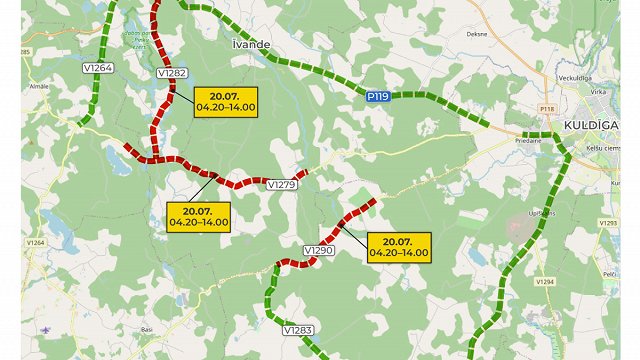On 15 road sections in Latvia, poles with red balls and cameras have been installed on the roadside. They are not yet running. The introduction of the average speed control system in the first stages has been delayed in Latvia.
The first section, located on the Rīga bypass A5, was supposed to start working in March.
Mārtiņš Lazdovskis, Chairman of the Board of Latvian State Roads, said: “The delays have been in relation to the approval of verification methods, the development of documentation, but of course, there have also been delays by the developer for which we will apply the contractual penalties contained in the contract.”
The verification of the accuracy of measurements shall be performed by the company “Latvian National Metrology Center”. But what they do has yet to be accredited. This has been done by the Latvian National Accreditation Bureau. It says that the process has been prolonged due to the absence of an appropriate expert in Latvia, who had to be invited from Lithuania. The company responsible for setting up the system said documents were prepared in time.
The company, Fima Ltd,has set up similar systems in Lithuania. Latvian systems will be slightly different in visual terms and will allow cameras to check whether the car insurance or OCTA is valid, whether a roadworthiness check has been passed, and whether a vignette has been purchased if necessary. The average speed will start to be measured in the near future, estimated by the company as well as the commissioning party.
“There will be new procurement and new plans for the next year. It won't be just 15 places in Latvia, there will be more. Compared to neighboring Lithuania – I believe it is close to a hundred,” says Mārtiņš Lazdovskis.
'Average speed' cameras differ from single speed cameras by having cameras at two positions on a stretch of road. Cars are monitored at both points with the average speed between those points calculated as a result, so that vehicles cannot simply slow down as they pass a camera and then accelerate back over the speed limit.





























